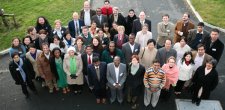Published: 2009
Este trabajo pretende acercar algunas reflexiones teórico-prácticas sobre la importancia del acceso a la información y la participación en los proyectos de desarrollo, entendiendo que fortaleciendo esas áreas el resultado final será un mejor proyecto que potencie las posibilidades de lograr un efectivo Desarrollo Sustentable.
En la sección introductoria se vinculará al acceso a la información pública y a la participación con los Derechos Humanos. Se analizará el efecto multiplicador que estos derechos pueden tener sobre el resto de los derechos fundamentales. Asimismo, se analizará cuáles son los beneficios más directos que puede tener la participación sobre los proyectos de desarrollo. Se presentarán brevemente las interrelaciones entre las normativas nacionales y las propias de las instituciones financieras internacionales, teniendo siempre en vistas el fortalecimiento de los sistemas de participación y de acceso a la información. Finalmente se hará una breve referencia al acceso a la justicia en sentido amplio, como parte integrante de estos sistemas.
Posteriormente, se hablará directamente sobre participación poniendo énfasis en algunos mecanismos específicos que pueden ser útiles en los procedimientos vinculados a proyectos de desarrollo. En la siguiente sección se analizará la participación y el acceso a la información en la iniciativa IIRSA a nivel general para luego poner el foco en dos proyectos concretos: el Gasoducto del Noreste (GNEA) y la represa hidroeléctrica de Garabí.
Finalmente y a modo de cierre, se presentarán algunas reflexiones que no pretenden elevarse en conclusiones sino en disparadores de discusiones que permitan fortalecer los procesos de desarrollo mejorando el acceso a la información pública vinculada a ellos y generando efectivos espacios de participación.
